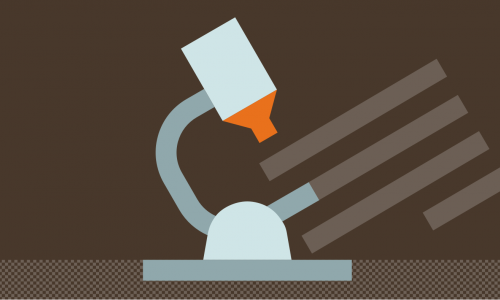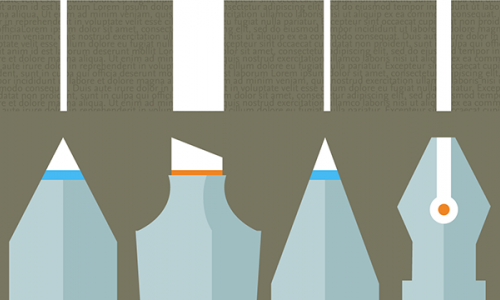19th Gender Summit - Global for SDGs : Day 1
Day 1 includes five themes composed of reports from influential actor and stakeholder organisations in the global SDG landscape who play instrumental role in the implementation of the goals. The presentations have been organised around five themes: Theme 1 - collaborations to create new synergies; Theme 2 - developing reliable statistics, indicators and models; Theme 3 - strengthening science systems for better societal response; Theme 4 - global co-operation for climate change technologies; Theme 5 - ensuring peaceful and safe societies. Also included in Day 1 is the Distinguished Plenary Address session with Mr Ban Ki-Moon, Former Secretary General of the UN as the Guest of Honour.
Distinguished Plenary Session with Mr BAN Ki-Moon
Duration
20 m
Plenary Session with Mr BAN Ki-Moon
View webinar about Distinguished Plenary Session with Mr BAN Ki-Moon

Theme 1 Introduction
Duration
10 m
Theme 1: Uniting Funders, Doers, and Custodians of Research to Strategically and Comprehensively Advance Quality Gender Research for SDGs
View webinar about Theme 1 Introduction

Enabling inclusive sharing of knowledge for SDGs. Innovations introduced at Elsevier at the nexus of gender, sustainability, and development research communication
Duration
1 h
Theme 1: Uniting Funders, Doers, and Custodians of Research to Strategically and Comprehensively Advance Quality Gender Research for SDGs
View webinar about Enabling inclusive sharing of knowledge for SDGs. Innovations introduced at Elsevier at the nexus of gender, sustainability, and development research communication

UN SDGs and the Voluntary National Reviews (VNRs) on Gender: What Countries are Reporting and What is Missing in VNRs
Duration
1 h
Theme 1: Uniting Funders, Doers, and Custodians of Research to Strategically and Comprehensively Advance Quality Gender Research for SDGs
View webinar about UN SDGs and the Voluntary National Reviews (VNRs) on Gender: What Countries are Reporting and What is Missing in VNRs

Mobilising, enhancing and harmonising the capacity of research funders to advance women and gender perspectives in research programmes for better quality of impact
Duration
1 h
Theme 1: Uniting Funders, Doers, and Custodians of Research to Strategically and Comprehensively Advance Quality Gender Research for SDGs
View webinar about Mobilising, enhancing and harmonising the capacity of research funders to advance women and gender perspectives in research programmes for better quality of impact

Solving societal problems by fostering gender equality in the educational, research, and innovation functions of HEIs
Duration
1 h
Theme 1: Uniting Funders, Doers, and Custodians of Research to Strategically and Comprehensively Advance Quality Gender Research for SDGs
View webinar about Solving societal problems by fostering gender equality in the educational, research, and innovation functions of HEIs

Theme 2 Introduction
Duration
10 m
Theme 2: Improving Data Collection, and Reliability of Statistics and Indicators on Gender with Intersectionality Dimensions
View webinar about Theme 2 Introduction

Can gender equality help solve Climate Change
Duration
1 h
Theme 2: Improving Data Collection, and Reliability of Statistics and Indicators on Gender with Intersectionality Dimensions
View webinar about Can gender equality help solve Climate Change

Prioritisation within the SDG network: which SDG linkages matter most?
Duration
1 h
Theme 2: Improving Data Collection, and Reliability of Statistics and Indicators on Gender with Intersectionality Dimensions
View webinar about Prioritisation within the SDG network: which SDG linkages matter most?

Lessons from the Gender Asset Gap Project
Duration
1 h
Theme 2: Improving Data Collection, and Reliability of Statistics and Indicators on Gender with Intersectionality Dimensions
View webinar about Lessons from the Gender Asset Gap Project

Exploring the policy space and gender data, using data across the SDGs and unpacking disparities
Duration
1 h
Theme 2: Improving Data Collection, and Reliability of Statistics and Indicators on Gender with Intersectionality Dimensions
View webinar about Exploring the policy space and gender data, using data across the SDGs and unpacking disparities

Counted and visible: Measurements of gender and intersecting inequalities across UN agencies
Duration
1 h
Theme 2: Improving Data Collection, and Reliability of Statistics and Indicators on Gender with Intersectionality Dimensions
View webinar about Counted and visible: Measurements of gender and intersecting inequalities across UN agencies

Theme 3 Introduction
Duration
10 m
Theme 3: Strengthening Science and Technology for Better Response to Societal Inequalities, Disruptions, and Emergencies
View webinar about Theme 3 Introduction

COVID-19 & the need for gender responsive pandemic preparedness and response plans
Duration
1 h
Theme 3: Strengthening Science and Technology for Better Response to Societal Inequalities, Disruptions, and Emergencies
View webinar about COVID-19 & the need for gender responsive pandemic preparedness and response plans

Supporting the Global SDGs: Gender Equity Initiatives at The Lancet
Duration
1 h
Theme 3: Strengthening Science and Technology for Better Response to Societal Inequalities, Disruptions, and Emergencies
View webinar about Supporting the Global SDGs: Gender Equity Initiatives at The Lancet

Impact of COVID-19 on higher education institutions, and gender perspective in disaster response in Japan
Duration
1 h
Theme 3: Strengthening Science and Technology for Better Response to Societal Inequalities, Disruptions, and Emergencies
View webinar about Impact of COVID-19 on higher education institutions, and gender perspective in disaster response in Japan

Biological Hazards and Disaster Risk Reduction: Gender Implications
Duration
1 h
Theme 3: Strengthening Science and Technology for Better Response to Societal Inequalities, Disruptions, and Emergencies
View webinar about Biological Hazards and Disaster Risk Reduction: Gender Implications

Gender aspects of COVID-19 and the need for better data
Duration
1 h
Theme 3: Strengthening Science and Technology for Better Response to Societal Inequalities, Disruptions, and Emergencies
View webinar about Gender aspects of COVID-19 and the need for better data

Theme 4 Introduction
Duration
10 m
Theme 4: Global Climate Technology Cooperation Projects and Gender-Mainstreaming Efforts
View webinar about Theme 4 Introduction

Implications for Korea on implementing its future gender-mainstreaming strategies for climate technology cooperation with developing countries on the basis of the gender-mainstreaming efforts of the CTCN and the GCF
Duration
1 h
Theme 4: Global Climate Technology Cooperation Projects and Gender-Mainstreaming Efforts
View webinar about Implications for Korea on implementing its future gender-mainstreaming strategies for climate technology cooperation with developing countries on the basis of the gender-mainstreaming efforts of the CTCN and the GCF

Ireland’s role in championing gender-responsive climate action, in policy and development programmes
Duration
1 h
Theme 4: Global Climate Technology Cooperation Projects and Gender-Mainstreaming Efforts
View webinar about Ireland’s role in championing gender-responsive climate action, in policy and development programmes

GCF's Gender Policy and Implementation
Duration
1 h
Theme 4: Global Climate Technology Cooperation Projects and Gender-Mainstreaming Efforts
View webinar about GCF's Gender Policy and Implementation

Global climate technology cooperation efforts under the UNFCCC as a government funded research institute and the meaning of gender-mainstreaming
Duration
1 h
Theme 4: Global Climate Technology Cooperation Projects and Gender-Mainstreaming Efforts
View webinar about Global climate technology cooperation efforts under the UNFCCC as a government funded research institute and the meaning of gender-mainstreaming

Gender-mainstreaming policies and accomplishments of the CTCN
Duration
1 h
Theme 4: Global Climate Technology Cooperation Projects and Gender-Mainstreaming Efforts
View webinar about Gender-mainstreaming policies and accomplishments of the CTCN

Theme 5 Introduction
Duration
10 m
Theme 5: Science for Peace and for Safe and Secure Societies
View webinar about Theme 5 Introduction

Gender empowerment of the society improves resilience in disaster management
Duration
1 h
Theme 5: Science for Peace and for Safe and Secure Societies
View webinar about Gender empowerment of the society improves resilience in disaster management

Ensuring safe societies by femicide prevention. A global perspective.
Duration
1 h
Theme 5: Science for Peace and for Safe and Secure Societies
View webinar about Ensuring safe societies by femicide prevention. A global perspective.

The pernicious nature of sexual harassment. What’s needed to stop perpetrators
Duration
1 h
Theme 5: Science for Peace and for Safe and Secure Societies
View webinar about The pernicious nature of sexual harassment. What’s needed to stop perpetrators

Integrating gender perspectives into the planning, execution and evaluation phases of military operations and exercises
Duration
1 h
Theme 5: Science for Peace and for Safe and Secure Societies
View webinar about Integrating gender perspectives into the planning, execution and evaluation phases of military operations and exercises

